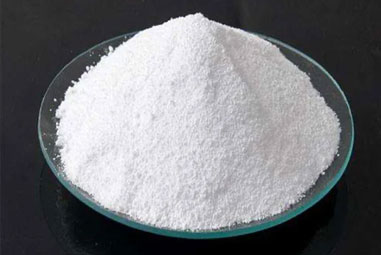
Potassium chloride is an inorganic salt that is used to treat low levels of potassium in the blood.potassium chloride It is a key ingredient in many medical treatments, including some heart medications. It also is a common ingredient in fireworks, where it produces a lilac or pale violet colour when burned. It is also used as a chemical feedstock in the manufacture of potassium hydroxide and potassium metal. It is available in solid form, dissolved in water and as a liquid for injections.
KCl is the principal intracellular cation of most body tissues and plays an essential role in a number of vital physiological processes, including the transmission of nerve impulses and the contraction of cardiac, skeletal, and smooth muscle.potassium chloride It is also involved in the maintenance of fluid balance and the normal electrolyte composition of blood.
Potassium is important for maintaining the proper functioning of the kidneys and nerves. It also helps to regulate blood pressure, muscle activity, and the movement of nutrients across cell membranes. Low levels of potassium in the blood are associated with symptoms such as confusion, weakness or limp feeling, extreme thirst, and increased urination.
High levels of potassium in the blood are associated with abnormal heart rhythms, particularly ventricular fibrillation. Symptoms of overdose include loss of consciousness, confusion, irregular or rapid heartbeat, and difficulty breathing. The gastrointestinal tract may be affected as well, with symptoms such as nausea, vomiting, and diarrhea.
All forms of potassium chloride are contraindicated in patients with structural, pathological (eg, diabetic gastroparesis), or pharmacologic (use of anticholinergic drugs) cause for impaired tablet passage through the gastrointestinal tract. Symptoms of gastrointestinal damage, if untreated, may include nausea, vomiting, paralytic ileus, and bowel perforation.
Injections of KCl have been reported to produce severe chemical burns and skin lesions in some patients. In a fatal accident, an injection of 15 mL of 15% KCl mixed with bupivacaine epidurally caused permanent parapalegia.
Oral potassium chloride is commonly prescribed to treat low potassium in the blood. It is also used to prevent and control gout, and to help treat certain other conditions, such as heart failure. It is a key ingredient in some heart medications, such as digoxin.
It is used to help control episodes of heart arrhythmias, and it has also been shown to be helpful in treating other conditions such as seizures, fibromyalgia, chronic fatigue syndrome, and depression. Potassium is also used as a supplement to reduce the risk of death in people who have been treated for cancer or leukemia.
If you are taking potassium chloride, talk to your doctor about what foods to eat and avoid. Your doctor may want to do regular blood tests to make sure you are receiving enough potassium. These tests can include an EKG. Follow your doctor's instructions closely. You should also avoid using this medicine if you are pregnant or breastfeeding.